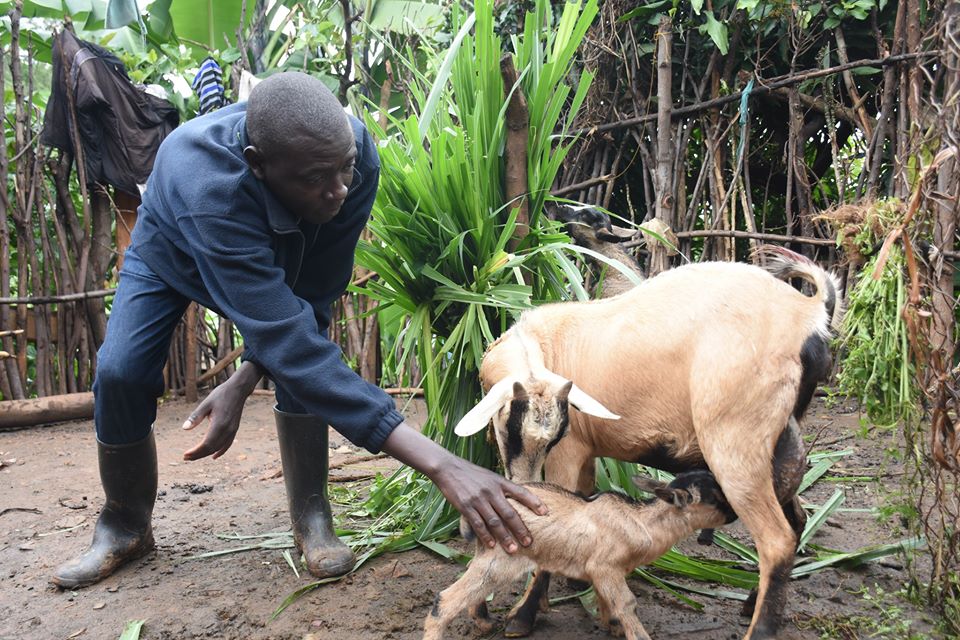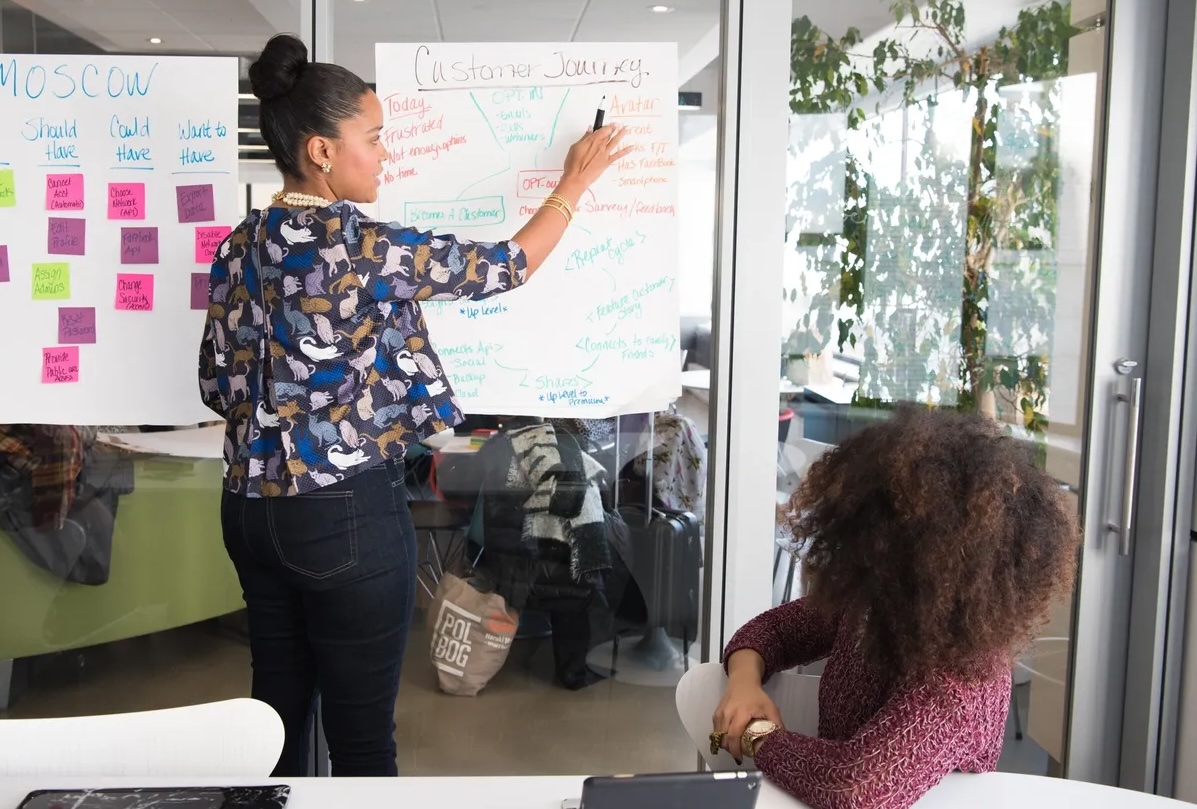Greetings, Agents of Impact!
Featured: ImpactAlpha Original
One Acre Fund secures $20 million to catalyze institutional capital for African farmers. Conventional investors see uncompensated risk. Investors of ‘catalytic capital’ see an opportunity for outsized impact. One Acre Fund has spent the last decade and a half demonstrating that small African farmers are not only lendable but, with additional support, are safe bets to reduce hunger and grow family incomes. In the last five years, the social enterprise led by Andrew Youn has doubled the number of farmers it serves in Kenya, Rwanda, Burundi, Tanzania, Malawi, Uganda and Zambia, reaching more than a million. One Acre has done the hard work in assembling the bundle of farm services needed to help some of the world’s poorest farmers help themselves. But the organization has not had access to working capital at the scale required to put a dent in rates of farmer poverty across the continent.
Now, a coalition of philanthropic investors is stepping up to lend $20 million in subordinated debt to the social enterprise with the aim of helping One Acre attract as much as five times that amount from development and commercial banks and other institutional lenders. “While the perceived financial risk is high, the impact risk is low,” says Charles Coustan of the MacArthur Foundation, which made a ten-year, $10 million program-related investment in One Acre. MacArthur’s loan matches another $10 million in loans from the family office Ceniarth, A to Z Impact Foundation, The ELMA Growth Foundation, Jasmine Social Investments and Netri Foundation. Backstopping the loans is a $10 million guarantee from the Ezrah Charitable Trust, a private foundation founded by South African investor and One Acre board member David Cohen. “The catalytic capital is filling a financing gap for us,” One Acre’s Jenya Shandina told ImpactAlpha. “It’s also sending a very strong signal to the market, to say, ‘We support One Acre Fund’s model and we support an investment in smallholder farming.’”
Keep reading, “One Acre Fund secures $20 million to catalyze institutional capital for African farmers,” by Dennis Price on ImpactAlpha. The Catalytic Capital Consortium is a sponsor of ImpactAlpha’s ongoing coverage of catalytic capital strategies.
Dealflow: Follow the Money
Schneider Electric and Huck Capital partner to offer mini-grids for commercial building owners. The partners will develop and operate 5-megawatt on-site micro-grids to help commercial and industrial building owners switch to clean energy (see, “Global corporations start to capitalize on ‘positive externalities’”). Inclusive Capital Partners, a new fund led by Jeff Ubben, is backing the initiative, which will be spun off into a separate company (see, “Life imitates art as hedge fund manager Jeff Ubben launches public-market impact fund”).
Lever VC reaches $23 million first close for alt-protein fund. The firm’s founders Nick Cooney and Lawrence Chu were early backers of plant-based burger companies Impossible Foods and Beyond Meat. Their new firm, Lever VC, has invested in 10 early-stage companies developing plant-based and lab-grown meat and dairy products. The portfolio includes TurtleTree Labs, which is making cell-cultivated cow milk and human breast milk; alternative cheese maker Good Planet Foods; and alt-protein pet food brand Bond Pet Foods.
Electric commercial vehicle maker Xos Trucks hauls in $20 million. The California-based truck manufacturer, previously called Thor Trucking, raised the funding after the state passed a bill to accelerate electric vehicle adoption. Proeza Ventures and BUILD Capital backed the round. Separately, Canoo, which makes an electric VW-style microbus, will go public on Nasdaq – at a $2.4 billion valuation.
Impact Voices: Pass the Mic
Remittance fintechs meet the COVID moment. When Mukuru was founded in 2006, Zimbabwe was tipping into a phase of hyperinflation that drove the country to scrap its currency in favor of the U.S. dollar and South African rand (but not before printing a 100-trillion-dollar Zimbabwean banknote in 2009). Mukuru was designed to help Zimbabweans abroad send home fuel vouchers, U.S. dollars and other stable stores of value. In the COVID crisis, South Africa-based Mukuru is adding services to help vulnerable individuals secure relief by making its platform available to donors to provide aid directly to informal workers and others shut out of formal relief schemes.
Fintech startups are in a unique position to provide safe and cost-effective payments and money transfers to help families weather the pandemic, Vicky Aadnesgaard, Claudia Masemola and Frederik Benzel of emerging markets investment advisory firm CrossBoundary write in a guest post on ImpactAlpha. Many fintechs originated as a workaround to lagging, inefficient, or predatory financial systems. Because individuals can no longer rely on informal money transfer channels (including physically carrying cash to friends and family), the COVID crisis could speed fintech adoption among Africa’s financially excluded. “This is exciting news for financial inclusion,” the authors write. “Once customers are educated on digital financial services, their access to and adoption of other financial products is likely to increase.”
Keep reading, “Remittance fintechs meet the COVID moment,” by Vicky Aadnesgaard, Claudia Masemola and Frederik Benzel on ImpactAlpha.
Agents of Impact: Follow the Talent
Songbae Lee, ex- of Calvert Impact Capital, joins USAID to lead efforts to mobilize private capital for agricultural finance… CapShift is hiring a client engagement director and a product manager… Stromness Management is looking for an operations manager… IIX Impact Institute’s innovative finance masterclass, featuring Agents of Impact from JPMorgan, KPMG, Kellogg Foundation, Global Affairs Canada and others, starts Monday, Sept. 7 (use code INNFIN50 to save $50)… And a very happy birthday to ImpactAlpha contributing editor and podcast host Monique Aiken.
Thank you for reading.
–Aug. 20, 2020











